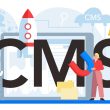Coding for Health: A Step-by-Step Guide To Becoming A Medical Coder
In the dynamic landscape of healthcare, where technology intersects with patient care, the role of medical coders has emerged as a crucial link in ensuring accurate and efficient billing and record-keeping. If you’re intrigued by the prospect of diving into the world of medical coding and are searching for ?how to become a medical coder,? you’re in the right place.
A medical coder is like a translator, turning the unique language of healthcare into a universal code that keeps the wheels of the healthcare system turning smoothly. Above all, they might not wear capes, but in the world of healthcare operations, medical coders are the silent architects of a seamless and well-functioning system.
I will crack the mysteries of becoming a medical coder in this step-by-step guide. This profession offers a pathway into the ever-evolving healthcare industry and holds the potential for a rewarding and impactful career.
It is time to embark on this coding journey together! So, keep scrolling until the end to learn more about this career path and how to become one?
What Is a Medical Coder?

You might already know what a coder is. But what is a medical coder?
At its core, a medical coder is like a secret code decipherer in the vast realm of healthcare. Picture this: when a patient goes to the doctor or receives any medical service, there’s a record created ? a documentation of what happened during that healthcare encounter.
Now, this record is like a treasure trove of information. However, it needs to be translated into a language that insurance companies and healthcare providers understand. Enter the medical coder, the unsung hero of healthcare paperwork.
So, what does a medical coder do? Think of them as linguistic wizards who turn complex medical jargon into a universal language of codes. Additionally, they meticulously examine doctors’ notes, diagnoses, treatments, and procedures, then assign specific codes to each detail.
These codes serve as a kind of passport for the patient’s medical journey, guiding the flow of information between healthcare providers, insurance companies, and even researchers.
Now, why is this coding magic necessary?
Well, it’s the backbone of the billing and reimbursement process. When a medical coder accurately translates the medical record into these codes, it ensures that healthcare providers get paid correctly.
Furthermore, this is necessary for the insurance claims to be processed smoothly. Above all, it helps everyone involved in the patient’s care be on the same page.
But it’s not just about numbers and codes. It’s about accuracy, attention to detail, and ensuring the healthcare puzzle pieces fit seamlessly. For instance, imagine it as putting together a giant jigsaw puzzle ? every code is a piece that contributes to the complete picture of a patient’s health journey.
How To Become a Medical Coder?

Now that you know what a medical coder is and what the job of one is, you might be interested in learning about the steps that you need to take to become a medical coder. Fret not! I am here to solve this issue. Here are the steps that you need to take to learn how to become a medical coder?
1. Understand the Basics of Medical Coding
Firstly, familiarize yourself with medical coding fundamentals, which involve translating healthcare services, diagnoses, and procedures into universal codes. Furthermore, this language of codes is essential for accurate billing and insurance claims.
2. Choose the Right Education Path
Secondly, opt for a reputable training program or certification course. Whether through traditional college courses, online platforms, or specialized coding schools, selecting the right educational path lays the foundation for your coding expertise.
3. Pursue Certification
Thirdly, while certification is not mandatory, it significantly boosts your credibility and employability. Also, acquire certifications such as Certified Professional Coder (CPC) or Certified Coding Specialist (CCS) from recognized organizations like AAPC or AHIMA.
4. Gain Practical Experience
Fourthly, apply your knowledge in a real-world setting through internships, part-time positions, or volunteering opportunities. Additionally, practical experience enhances your coding skills and provides a firsthand understanding of the healthcare environment.
5. Stay Informed and Updated
Medical coding is a dynamic field, with codes and regulations evolving. Stay abreast of industry updates, attend workshops, and engage in continuous education to ensure your skills are current and relevant.
6. Consider Specializing
Explore specialized coding areas such as inpatient coding, outpatient coding, or risk adjustment coding. Specialization can enhance your expertise, making you an asset in specific healthcare settings.
7. Develop Soft Skills
You need several skills to be a part of this industry. Effective communication, attention to detail, and critical thinking are vital in medical coding. Cultivate these soft skills to complement your technical proficiency and interact seamlessly with healthcare professionals.
8. Network within The Industry
Connect with professionals in the healthcare and coding communities. Networking opens doors to job opportunities, mentorship, and a deeper understanding of industry trends.
9. Create a Stellar Resume and Portfolio
Craft a compelling resume highlighting your education, certifications, and practical experience. Showcase your coding proficiency by including a portfolio of successful projects.
10. Explore Job Opportunities
Lastly, begin your job search by exploring positions in hospitals, clinics, insurance companies, or consulting firms. Leverage online job portals, attend career fairs, and tap into your network to discover exciting opportunities.
What are The Benefits of Becoming a Medical Coder?

Now that you know how to become a medical coder, you might think, ?Are there any benefits of becoming one??
Well, I have you converted in this aspect as well! Here are some of the basic benefits that you will have if you decide to become a medical coder:
- Lucrative Career Options: Medical coders are in high demand, offering a range of career paths with competitive salaries.
- Remote Work Opportunities: Many coding positions allow for remote work, providing flexibility and work-life balance.
- Intellectual Challenge: Coding involves problem-solving and attention to detail, making it intellectually stimulating.
- Contribution to Healthcare: Medical coders are crucial in ensuring accurate medical records and billing, contributing to efficient healthcare delivery.
Is Medical Coding a Good Career Path?

In the ever-evolving landscape of career choices, the spotlight is increasingly turning toward medical coding as a promising and fulfilling path. But why, you ask? Well, let’s break it down.
First and foremost, medical coding is like being the translator of the healthcare world. You take the complex language of medical procedures and turn it into a code that everyone ? from doctors to insurance companies ? can understand. It’s like holding the key to a secret medical language, and that’s pretty cool!
Secondly, let’s talk about stability. Medical coding stands out in a world where job security can feel like chasing a mirage.
Besides, the demand for skilled coders is rising, making it a sturdy career choice. The healthcare industry is like a bustling city; every hospital, clinic, and insurance company needs someone to navigate the coding labyrinth.
But what about flexibility? The beauty of medical coding is that it often comes with the option to work remotely. Imagine decoding medical mysteries from the comfort of your own home ? that’s the kind of flexibility many crave.
Intellectual challenge, anyone? Medical coding isn’t just about punching in numbers but solving puzzles.
Each medical record is a puzzle waiting to be pieced together, and your coding skills become the superhero cape that makes sense of it all. In other words, it’s a constant mental workout that keeps things interesting.
And let’s not forget the impact. As a medical coder, you’re not just crunching numbers. Additionally, you’re ensuring accurate billing, contributing to patient care, and playing a crucial role in the smooth operation of the healthcare system.
Wrapping It Up!
In wrapping up this guide, venturing into the realm of medical coding is a journey teeming with opportunities for growth and impact. The intersection of technology and healthcare beckons, and as a medical coder, you’re not just decoding numbers ? you’re decoding the future of healthcare.
So, embrace the challenge, stay curious, and step into a profession where every code you input becomes a meaningful piece of modern healthcare’s intricate puzzle.
If you want to learn how to become a medical coder, I hope that this blog has been of help to you. Furthermore, if there are any other queries related to the same, please feel free to let me know. Besides, all you need to do is scroll down until you reach the bottom of the page. Then, leave your comments and suggestions in the box below. And I will be there to answer them all for you!
Learn More About:






















